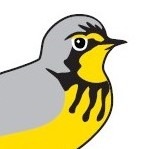By Dr. Lisa Nisbet, Environmental Psychology Researcher, Trent University

Christmas Bird Count volunteers Photo: Kelsey Bourgeois
In fall of 2018, Bird Studies Canada invited volunteers like you from across the country to participate in a research study I was conducting. Over 500 people completed a survey that inquired about wellbeing, connection to the natural environment and experiences as Citizen Scientists (collecting and contributing information about birds or other species to add to scientific knowledge). A huge thank-you to all those who took time to contribute!
While the analysis of participants’ very detailed and thoughtful essays on their motives for engaging in Citizen Science is ongoing due to the large volume of responses, we are happy to report some preliminary results.
The 510 respondents range in age from 9 to 85 years, with the average age being 52.1. The majority (63.5%) are female and live either in city suburbs (30.6%), a small town (21.8%), or a rural/farm area (32.9%). It seems many Bird Studies Canada volunteers reside in places with good opportunities for viewing wildlife, whether they have a backyard feeder or are able to hike, walk, or paddle in nearby nature areas. Participants are engaged in a variety of Bird Studies Canada projects, with the Christmas Bird Count, Great Backyard Bird Count, and Project FeederWatch being some of the most popular. Many volunteers submit data to eBird Canada, and contribute to bird surveys and breeding bird atlases.

Overall, the survey respondents reported high levels of connectedness with nature (average score = 4.46). Typical scores for community members or students range from 3 to 3.5, with environmental educators and activists often scoring somewhat higher on a possible 1-to-5 scale. Unsurprisingly, these findings suggest that Bird Studies Canada volunteers have a strong bond with the natural environment. This includes a sense of identity or self-concept that includes the natural world, as well as a comfort with and desire to be in nature. Our relationship with animals such as birds is an important part of our connection with nature; survey respondents reported concern for all aspects of the biosphere. Participants’ environmental concern for all living things was strongest, followed by altruistic concern for other people and future generations, and concern for how the environment affects one’s self interests.
Bird Studies Canada volunteers also reported being happy. They have more positive than negative moods, feel vital and alive, and also experience feelings of awe, curiosity, and fascination (emotions often associated with time spent in nature). Although all survey respondents reported high levels of wellbeing, overall, people who feel the strongest bonds with the natural environment are also the happiest (connectedness with nature positively correlated with happiness indicators). It is possible that being happy causes us to feel more connected to nature (as opposed to the other way around), but research on nature’s benefits for human mental and physical health suggest the effect is likely in the alternate direction. That is, spending time in nature and developing a sense of connection with the natural world enhances our health and happiness.
The links between nature connectedness and environmental concern also tell us that spending time observing and learning about birds and other wildlife is essential for helping people to develop a conservation ethic.
The hundreds of personal stories contributed by Bird Studies Canada volunteers in this study will help us to better understand the experience of Citizen Scientists and how to inspire more people to learn about, connect with, and protect the natural world. Thank you once again to all those who responded to the survey!


